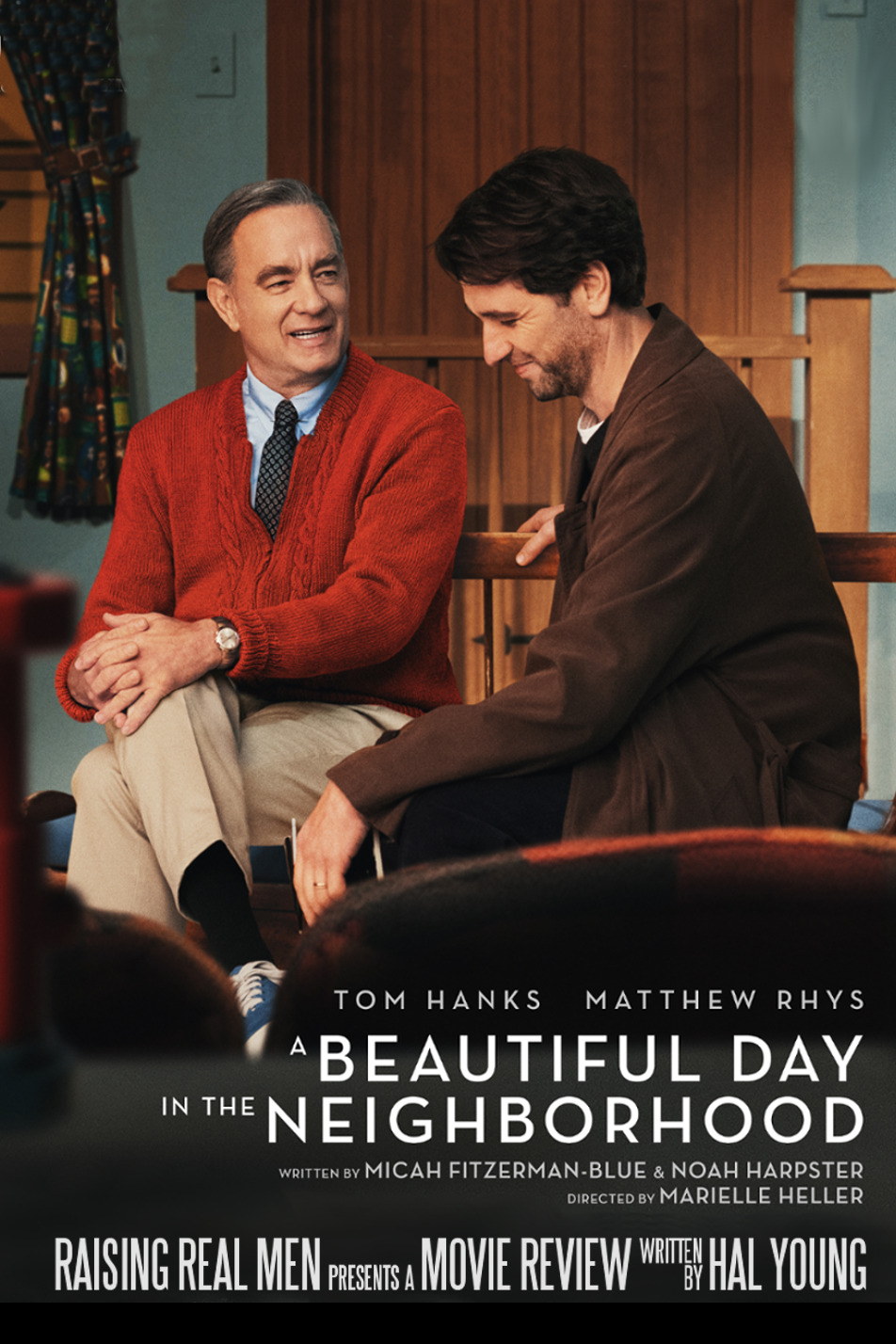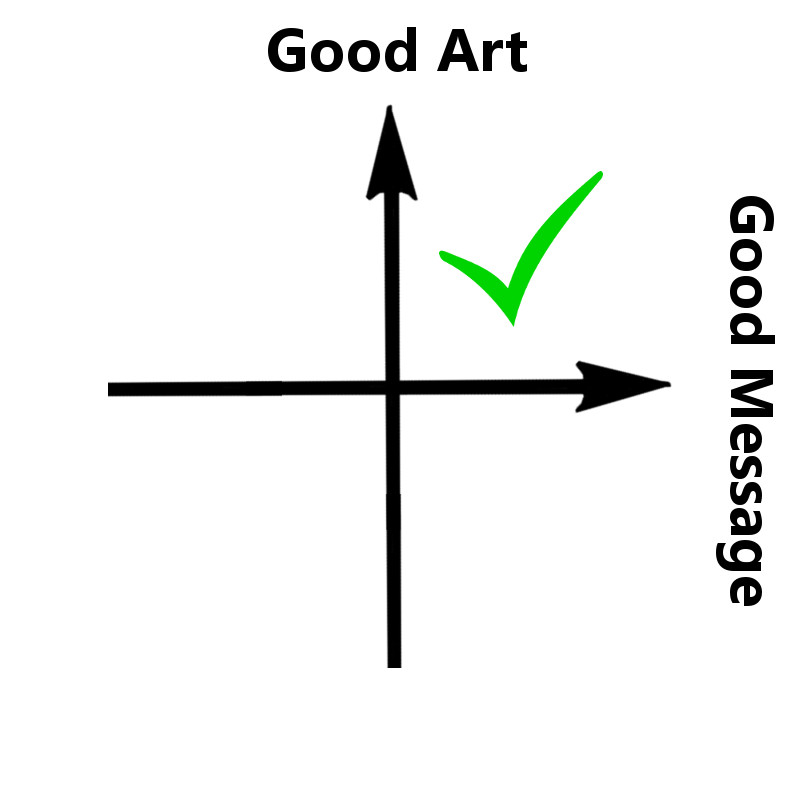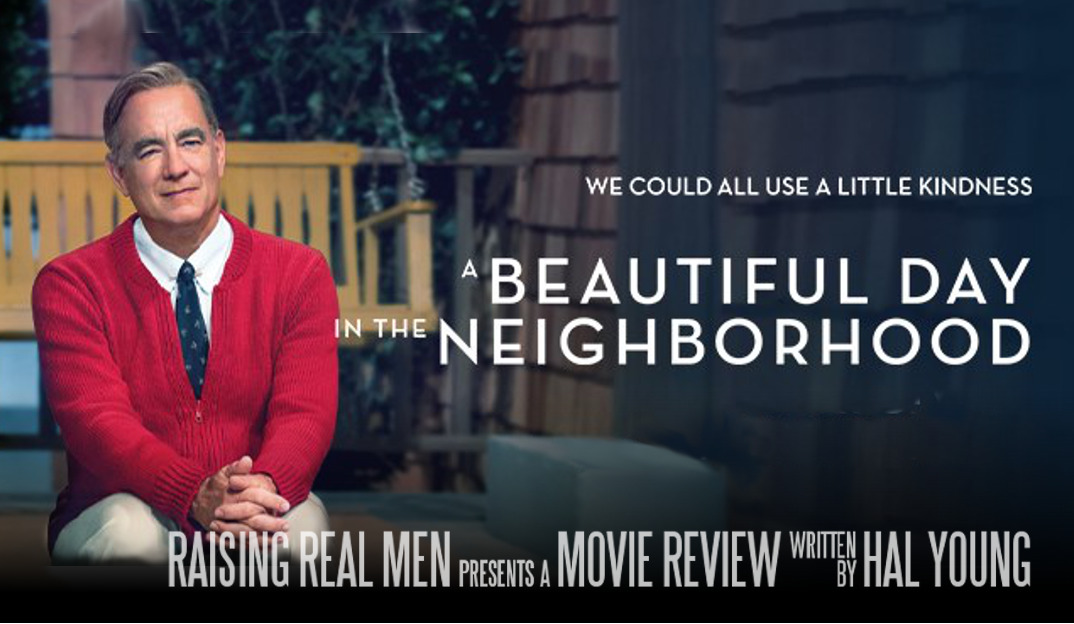It’s A Beautiful Day in the Neighborhood
A review of the new Tom Hanks movie
In 1998, an investigative reporter for Esquire magazine was assigned to do a profile of the TV legend, Mister Rogers. That reporter had a well-earned reputation for keen, biting cynicism, and the magazine’s editors thought it might be interesting to have their most hard-edged reporter writing a puff piece about the nicest man on television.
The encounter changed the reporter forever.
The 400-word assignment – that’s about a typewritten page – turned into an eight-thousand-word cover story, and the new film A Beautiful Day in the Neighborhood is freely-adapted from that article.
The Story as Told
In the film, reporter Lloyd Vogel (Matthew Rhys) is tasked with the interview, and shows up at the television studio with a battered face – because he and his estranged father had a fistfight at his sister’s wedding the weekend before. When the kindly Fred Rogers (Tom Hanks) asks how he got hurt, Vogel pretends it was a softball injury.
But through several meetings with Rogers, Vogel discovers two things. First, that Fred Rogers off-camera is the exact same person as Mr. Rogers in his Neighborhood. Second, that he can’t really keep secrets from this strangely intense man. Through the course of their developing friendship, Vogel finds his interviews turn into counseling sessions, where Rogers turns the attention away from himself and focuses on the hurts and frustrations of the reporter instead.
And through the encouragement of the children’s TV host, Vogel finds a path to forgiveness, reconciliation, and healing – in his very problematic grown-up relationships.
Fact and fiction
As Hollywood does, the story as filmed isn’t really a documentary. Many of the events shown happened in different circumstances – though they did happen. The actual reporter’s father was similar to the screen version in some respects, but they never had the broken relationship central to the film story. To be honest, most of the Vogel family in the film is fictitious – as is the Vogel name (the actual reporter is named Tom Junod, and while he reviewed the screenplay and loved the film, understandably suggested the name change).
But if you read the original Esquire article from 1998 – link below, though there is a language advisory – you see the tone of the film. A worldly, ironic, unbelieving journalist was totally overcome by a quiet man of prayer, whose foundational message was “Remember, you were a child once,” and the need for kindness and gratitude in all our lives. That much is truth.

Things to consider and discuss
We attended a preview screening several weeks before the film’s release, and before the lights went down, the host warned us, “This is not a children’s movie.” There are a number of very grown-up themes; in fact, you might say one theme is that grown-ups often carry significant hurt from their childhood, and it influences everything in their adult lives. Vogel’s adulterous father abandoned his wife and family when she had terminal cancer, and his callousness scarred the younger Vogel for life. It spills over into the reporter’s own family life, and you see his marriage struggling because of fears and truth issues that childhood betrayal caused.
Several times in the movie, we were reminded that this was not a Christian film as they came so close, yet missed an opportunity to share the gospel.
But the overarching message is that grace, redemption, and restoration are possible – though we may need the faith of a child to embrace them.
What if you didn’t grow up with Mr. Rogers?
Fred Rogers went into television to try and provide positive, uplifting programming – as a reaction to the negative things he saw on early TV. Some of us steered our children away from television in their early years, or maybe we ourselves were re-directed that way. Can viewers who didn’t grow up with a daily visit to the Neighborhood and the Land of Make Believe gain much from the film?

Absolutely! The message is clear and moving, even if you’re not a long-time fan. Of course unfamiliar viewers won’t have previous associations with the scale model neighborhood that draws Vogel’s attention (and expands to a model world, in the transitional scenes). They might not recognize the regular puppet characters like X the Owl, Lady Elaine Fairchild, and King Friday XIII. Most of all, they might have trouble believing such an other-worldly person like Mr. Rogers could actually exist – though his adult sons assured the media the person Tom Hanks portrayed on camera was the dad they saw at home, and Tom Junod’s recent articles show that Fred Rogers’ influence still shapes his daily life. We did advise our adult children to watch a few episodes of Mr. Roger’s before they saw it, just so they would understand it better.
So while it’s not a kid’s movie, those of us who used to be kids and still feel the child’s need for love, encouragement, and reassurance, will find A Beautiful Day makes for a very good evening together. You might consider going to see it with your teens, adult kids, adult siblings, or parents. It’s a good discussion starter, for sure. We recommend it!
Stories you might find interesting:
“Can You Say … Hero?” – Esquire, 11/98
The original 1998 article by Tom Junod – note, some profanity
“What’s Fact and What’s Fiction in A Beautiful Day in the Neighborhood” – Slate, 11/21/19
“Mr Rogers Changed Tom Junod’s Life” – Esquire, 12/19
Tom Junod, the original of the movie’s Lloyd Vogel, talks to Esquire about how his relationship with Fred Rogers made a difference to him
“My Friend Mr. Rogers” – The Atlantic, 12/19
Junod writes about his friendship with Fred Rogers, the new surge of interest in his message of kindness and acceptance in a world of growing incivility, and what Junod thinks Rogers’ real message is – a call to prayer.
By His grace,
Hal

